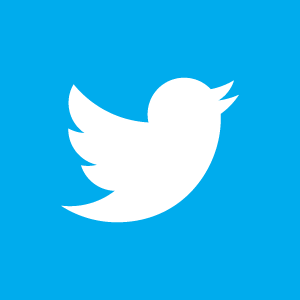language and the future
If it is true that every human being feels somewhere deep inside them all that is taking place on the earth what would be their report on the state of humanity today? If John Donne is right and no man or woman is an island but is connected by subterranean strings to all that is felt and suffered, what would be the composite portrait of our time? This is a question that we are compelled to answer now more than ever because the great convergence of all our narratives is for technological reasons becoming more immediate than ever. It is not primarily the responsibility of the artist, the activist or the politician to be aware of this snapshot of where humanity is today. It has now become all of our responsibility. Ignorance as bliss doesn't help us anymore. Everywhere terrible knowledge presses down upon us and what is not reported in the media is more horrific than what is reported.
We try to grapple with the world and it eludes us. Reality proves intractable to even the best intentions of governments. Across the world it seems there is a gigantic failure of will to tackle the problems that engulf the ordinary citizen. In Asia, in Africa, in the Middle East, in South America the poor seem to be invisible to the five or ten plans. They fall through the net whose holes are so vast that they support only the rich. And then collectively these nations and continents have the great web of the great nations to contend with. Ideologies battle one another. Religions maintain their ancient antagonisms in an ever increasing spiral of violence. The world seems fatally divided between North and South, East and West, and yet above it all or beneath it all exists an invisible super-nation collecting all the world's power – mining, oil, and multinational wealth – into a kind of super-continent of global capitalism.
Revolutions come and go, only slightly denting infinite history. Can education make a difference in all this brawling terrestrial chaos of nations, classes, religions and cabals? Education advances but does not always enlighten, and like a hammer can be swung many ways. Can ideas make any difference in this cauldron of divergent minds? One wonders. Ideas too are engaged in the battle always taking place in the always descending, always ascending story of humanity. In spite of it all, we can't lose faith in the possibility of principles that can take us forward. We may disagree about many things, but about some things it is possible for us to agree. And that is that being human and being here, now, is the thing. We all have the right to fight for our place, to be here. We all have the right to determine the dignity of our lives. And we all have the right to express the truth of our condition, whether it be the condition of oppression, exaltation or the joy of discovery.
This is why language is so fundamental. They say music was born from grief; language may have been born from the inexpressable. Language is always a paradox. The world is numinous, multifarious, but with language we attempt to give it shape. Our emotions are mysterious and formless, but with language we canalise them into the expressible. It's almost as if language were a kind of bridge between the sublime and the ordinary, between our vast inner space and the hard world. It is language that has defined all the problems, the failings, the inequalities, the poverty, the exploitations and all the cultural states of being. Language brought a sort of order from all that chaos. And as a tool of perception, language interprets our world. You could almost say that we experience the world twice over, through the world itself, and then through the prism of language. This is not meant as a theoretical meditation on the nature of language. All of this is just a way of saying that with thought we wrestle with the world, and with language we express the fruit of our wrestling. Wittgenstein said famously that the limit of your language is the limit of your world. This also means that as you expand your language you expand your world. It also means that as you clarify your language you clarify your world. If imagination shaped the world, whether towards chaos or towards success, then language is one of the chief tools of that shaping.
Chinua Achebe who passed away recently reminds us often of the importance of language and, because he favoured moderation and the right balance in our grasp of things, he was able to speak many truths about the African condition. But every day legions of voices collide. There are many languages of the mouth, but only one language of the heart. Then there are the secret language of art, the mysterious language of music, and the universal language of symbols. As we look out from the volcanic ash of our times, it becomes clear every day that we need a new language to connect all the peripheries to all the centres. We need a new language to wake us up from the familiarity with which we receive the outrages of our times.
But what new language could we speak to stop the slaughter in Syria, what language to end the endless inequalities in the world, the sweatshops in China, the suicide bombers, the exploitation of Africa, the swelling imprisonment of young black men in America, what language to disentangle the Gordian knot of Israel and Palestine? What language to speak to religious fanatics of all kinds... What language is there to heal a riven world, a world fatally divided by race, caste, and gender?
In a world in which hundreds of thousands of babies arrive on this stage every day, inheritors of tradition that will liberate them or crush them, the philosophers would say language is all we have. In all the myths language was the blessing and language was the curse. With it people could be united in pursuit of a noble distant goal or they could be divided in endless factions in deadly struggles of power. Language is not only the evidence of civilisation, it is one of the causes. Once we stood in the valley and looked upwards; now we stand in the mountains and can see all around the great labyrinth which is our world. Language is one of the means by which we make sense of the labyrinth. Because of the contribution of science, the arts and general education we can see the problems more clearly. But one of the problems we don't see as clearly as we should is that language is an important part of the solution.
A good vision in a muddled language becomes almost a muddled vision. But a bad vision in a clear language is a disservice to the world because its clarity becomes part of its power. All through the centuries the poets have tried to rouse us to a noble and truthful vision of ourselves. It's not just that the limits of our language are the limits of our world. The poets and philosophers through the centuries have also hinted that our language creates our world.
For too long we have been taught that language is purely a means of expression and communication. We need to consider the possibility that language is eminently creative. Not only does it shape the world we see through interpretation, it makes the world we live in through its own negative or positive creativity. A language of doom eventually creates that doom. A language of catastrophe makes that catastrophe inevitable. In all the dialogue of the Middle East, one hears more often than not the language of impossibility. For decades we have had the language of war, the language of violence, the language of revenge. In our economy we have heard the language of depression, austerity, defeat. One is not advocating a false language to describe the truth of a condition; but it is important to stress how a people can be bludgeoned by a language of hatred, so that hatred becomes their eternal law.
It needs to be said that our contemporary condition does not define us completely. The truest definition of ourselves begins with us, and the attitude with which we face our world. What we need is a language of perspective, one that can show us where we are now, show us where we can be, and remind us of the tough magical stuff of which we are made. Not banal hope, but a 360 degree vision of the human spirit. We need a language that reminds us that we are affected by politics but essentially transcend it, a language that reminds us that we do not have to be a victim of the forces that hold the world in a dragon's grip, but that if we look deep into ourselves and into our histories we might see that we hold in some measure the sword of our deliverance.
Ben Okri, poet, novelist and Booker Prize-winner, for Zamyn
© Zamyn and the author, all rights reserved. No reproduction, whether in whole or in part, without the prior written consent of Zamyn.



